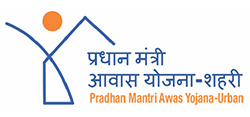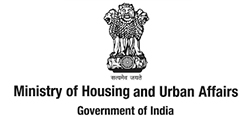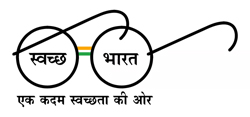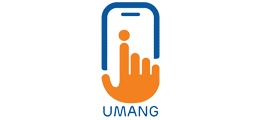Overview
Pradhan Mantri Awas Yojana (Urban) [PMAY-U] Mission under Ministry of Housing and Urban Affairs (MoHUA) proposes to conduct workshops and seminars 'Awas Par Samvaad' for multiple stakeholders i.e. urban practitioners, engineering/planning/architecture/social sciences/finance students, faculties, academia, Civil Society Organisations, etc., from 1st July to 30th September 2021 through Educational Institutions and Primary Lending Institutions (PLIs )/Banks/ Housing Finance Companies (HFCs) in association with States/UTs.
Objective
Awas Par Samvaad aims to deliberate, discuss, disseminate share learnings and knowledge on 'Housing in Urban Spaces' amongst multiple stakeholders belonging to varied streams of learning and practices e.g. engineering, urban community development, planning, finance, etc.
Illustrative themes
An educational institution/PLI can choose to conduct seminar/workshop on one theme only.
Target Audience:
Multiple stakeholders: urban practitioners, students of engineering, urban planning, town planning, architecture, social sciences, geography, other humanities subjects, finance, economics, Marketing, Micro Finance, faculties, academia, Civil Society Organisations, Real Estate Sector, Bankers, public representatives, community leaders, Government officials of other urban missions like Smart Cities, AMRUT etc and other stakeholders.
| Theme | Topics for Panel Discussions |
|---|---|
Interventions through PMAY-U Mission |
|
Inclusive Housing |
|
Technology and Innovation |
|
Financial Inclusion |
|
Social Mobilisation |
|
Implementation Methodology
The Mission proposes to initially conduct 75 seminars and workshops across States/UTs through the following schedule:
Registration through PMAY (U) website from 1st to 20th July 2021.
Seminars/Workshops: 21st July to 30th September 2021.
Seminars/workshops can be conducted:
OFFLINE- classroom model (WEBCAST compulsory) If OFFLINE, four sessions of 30-40 mins each, including a 10 minute session to showcase PMAY (U) videos and life transformation stories of PMAY(U) Beneficiaries.
ONLINE ONLY- If ONLINE, a session for ONE hour should be conducted, including a 10 minute session to showcase PMAY (U) videos and life transformation stories of PMAY(U) Beneficiaries.
For the successful roll out of 75 seminars/workshops, MoHUA, has developed a 'Awas Par Samvaad' module in the PMAY (U) website: https://www.pmay-urban.gov.in
A helpdesk- Phone Nos. 011- 23061827, 23063285, to facilitate educational institutions/PLIs is made available at MoHUA. Educational institutions/ PLIs may write to kka-pmayurban@gov.in for any queries.
While broad themes have been suggested by MoHUA, institutions will have the leverage to identify topics for panel discussions. However, it is mandated that every workshop should include a session on PMAY(U) mission, life transformation journey - experience sharing , show casing videos and short lms of PMAY(U).
MoHUA in association with UN-Habitat will issue a certicate of participation which can be downloaded from the PMAY(U) website https://www.pmay-urban.gov.in
The workshop/seminar shall not exceed the strength of maximum 50 participants (in Classroom model, i.e. OFFLINE) per workshop/seminar, adhering to all COVID-19 safety protocols.
The State Level Nodal Agency shall be the coordinating agency. It will also approve and recommend the educational institutions for onward review and approval by MoHUA.
The Commissionerm or Executive Ocer (EO) of ULB shall nominate respective City Level Technical Cell (CLTC) specialists to orient and train beneficiaries to articulate their experiences during the workshop.
The ULB Commissioner/ EO and the respective CLTC specialists shall oversee the workshop proceedings and provide all necessary facilitation for the institutions and PLIs.
Financials
MoHUA has provisioned an amount of Rs 35,000/- for each seminar/workshop conducted shall be provided as reimbursement to Institutions. Break-up of which is as per the table below:
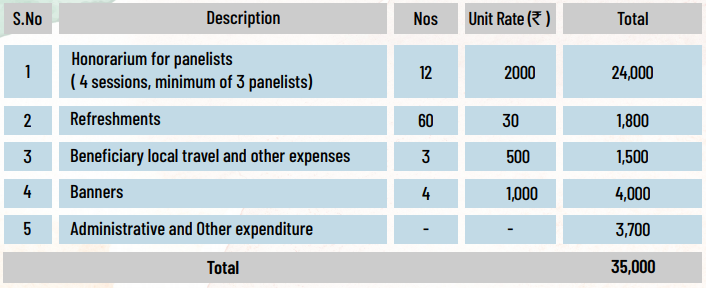
With respect to ONLINE ONLY seminars/workshops an amount of Rs 7,000/- per workshop/seminar, has been provided catering to the Honorarium of panelists (1 session, minimum of 3 panelists) and Rs 1000/- towards expenditure for banners.
Further, no cost will be provided for life transformation journey- experience sharing by PMAY (U) beneficiaries, in ONLINE ONLY workshops/seminars as beneficiaries will be interacting from their residence only.
The expenditure for reimbursement shall be claimed in a prescribed format certied by the Head of the Department and Nodal Ofcer for the seminar/ workshop and submitted to the SLNA along with all event reports, photographs, videos, media coverage, and detailed list of participants for reimbursement and uploading the same on the PMAY(U) website.
The SLNA will meet this expenditure from the State IEC budget under Capacity Building.
Registration, Sign in and Booking of Schedule
Educational Institutions/Primary Lending Institutions (PLIs) shall visit PMAY (Urban) website https://www.pmay-urban.gov.in and register themselves along with nodal officer details.
After successful registration, educational institutions/ PLIs will login based on mobile number and OTP validation and submit a proposal to conduct workshop.
Educational institutions/ PLIs will submit the information against the parameters mentioned below:-
- Themes and topics for discussion
- Objective of the Workshop/seminar
- Expected outcome
- Details of panelists and participants
- Agenda of the workshop/seminar
- Copy of proposal
- Name and details of the Nodal Officer for Workshop/Seminar
After submission of the proposal by educational institutions/ PLIs, State/UT will download and evaluate the proposal. During evaluation, State/UT can either:
- Reject
- Accept
- Raise a query to Institutes/PLIs
If State/UT rejects a proposal, it will mention the reason for rejection and the system will display the status to the Educational Institutions/ PLIs.
If State/UT raises a query, then State/UT will post the query and request Educational Institutions/ PLIs to submit explanation for the same.
If State/UT accepts, it will forward the proposal to MoHUA along with remarks and recommendation.
MoHUA will download and evaluate proposal. During evaluation, MoHUA can either
- Reject
- Accept
If MoHUA rejects the proposal, it will mention the reason for rejection and system will display status to the State/UT and educational institutions/ PLIs.
After MoHUA approves the proposal, the system will display result inside State/UT and educational institutions/ PLIs login and send SMS alert to the concerned stakeholder.
After Seminar/Workshop, Institutes/PLIs will upload following:-
- Proceeding and list of attendees
- Photos
- Videos
- YouTube link
- Dossier on Print and Social Media Coverage
- Upload signed copy of UC to the SLNA.
- Logo of Educational Institutions/Primary Lending to be included in the certificate
After submission of proceedings by Educational Institutions/ PLIs, system will generate participant wise Certicate of Participation and send SMS to the participants to download certicate from the PMAY (U) website https://www.pmay-urban.gov.in after entering registered mobile number and OTP validation.
Educational insititution/PLIs will upload the certied copy of the UC for reimbursement, along with all event reports, photographs, videos, media coverage, and detailed list of participants.
The SLNA will verify and forward the same to MoHUA for reimbursement.
The registration of workshops/ seminars are limited to 75 in number for States/UTs.
MoHUA solely reserves the right to amend or permit or revise the number of workshops/seminars in States/UTs on its own discretion.
Workshop Model
The workshop shall be conducted for around three to four hours factoring all panel discussions, sessions, show casing lms, dialogues, experience sharing, including Q&A.
Panel discussions (minimum 3 members per panel) and sessions shall consist of lectures by eminent speakers, life transformation journey - experience sharing by PMAY (U) beneficiaries, showcasing videos and short lms of PMAY (U).
Institutions shall coordinate with the concerned ULBs for mobilizing PMAY (U) beneficiaries to be a part of the workshop/seminar.
Institutions shall share the proceedings of the workshop through YouTube and upload photographs on PMAY (U) website.
Highlights and key lessons/actions from each workshop shall be reported in at least one blog post or press release in local media and on PMAY (U) website.
They shall propagate the programme actively through press, respective website, social media such as Facebook, Twitter, urge students and stakeholders share details of seminars/ workshops through their individual/Organisational accounts.
Expected Outcomes
75 seminars/workshops will be conducted across the Nation. 'Housing for All' Mission would have promoted housing as a subject with more practical and relevant experiences from the grassroot.
A platform for student, professionals and urban practitioners to enable them learn about government policies/frameworks for future application and implementation of housing programmes.
The seminars/workshops will trigger young minds to explore the realms of large scale government programmes and further bring in new perspectives in their dealings as professionals.
The seminars/workshops would set a precedent for educational institutions to conduct more programmes as a part of their curriculum, addressing the universality of housing from various perspectives.
The events are expected to create a buzz around housing among various stakeholders by wide media coverage of events by institutions.
Surge in activities on social media by students and institutions through information sharing among peer groups.
Reference Materials
Disclaimer
MoHUA reserves the right to use photographs and videos of the seminars/workshops in any appropriate platforms for the purpose of dissemination.
With respect to Transformational stories of PMAY (U) beneficiaries, it is assumed that the educational institution has taken the consent of the beneficiary for use of her/ his photograph and video.

